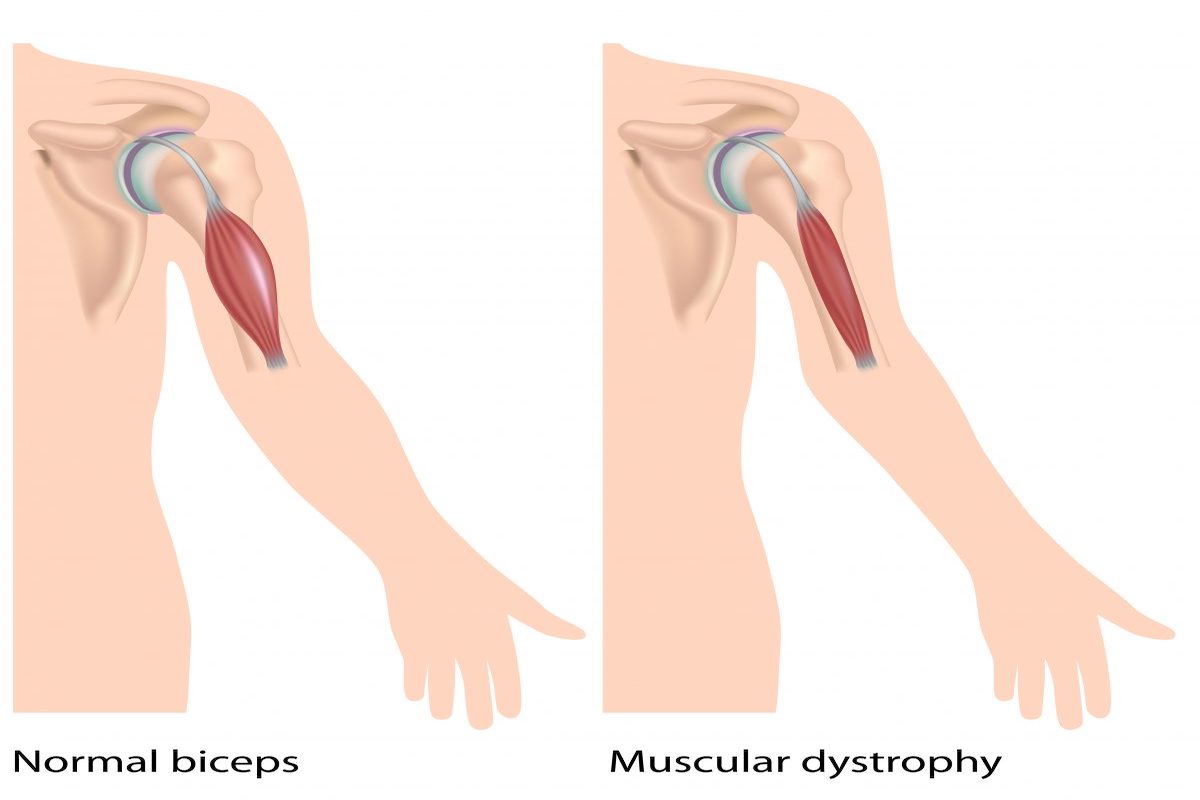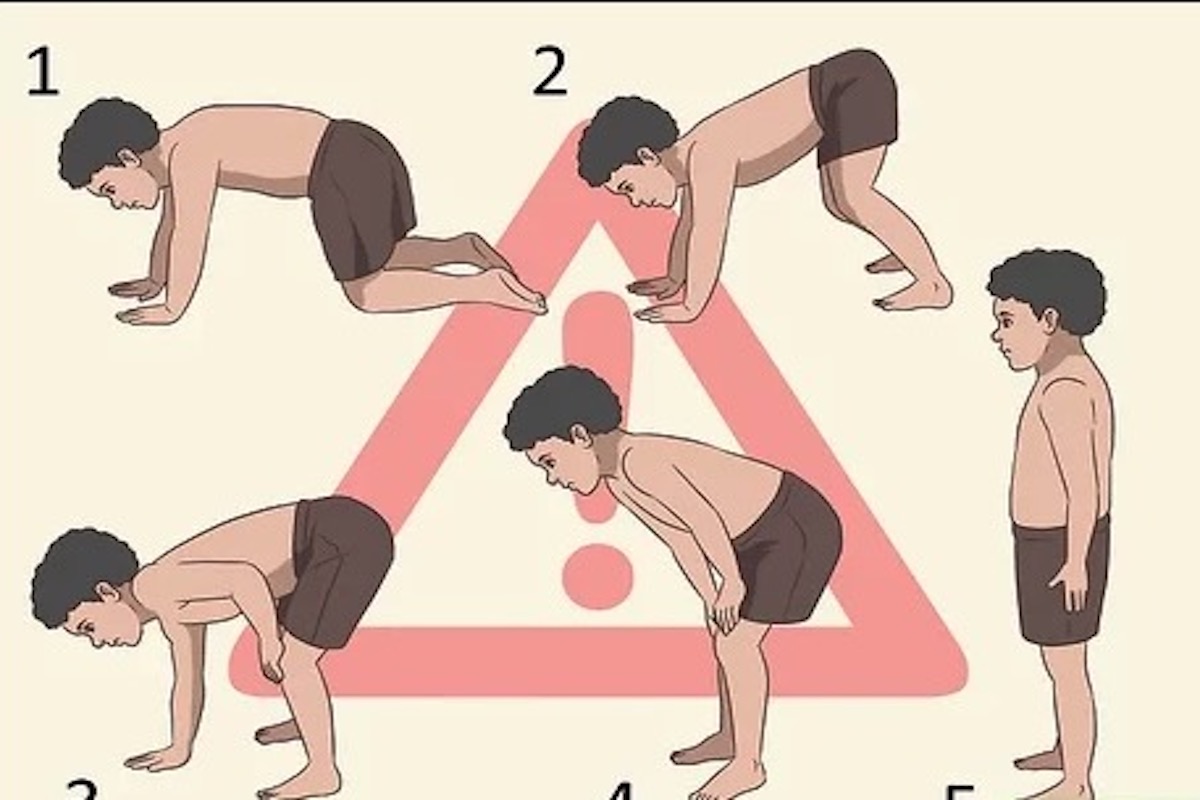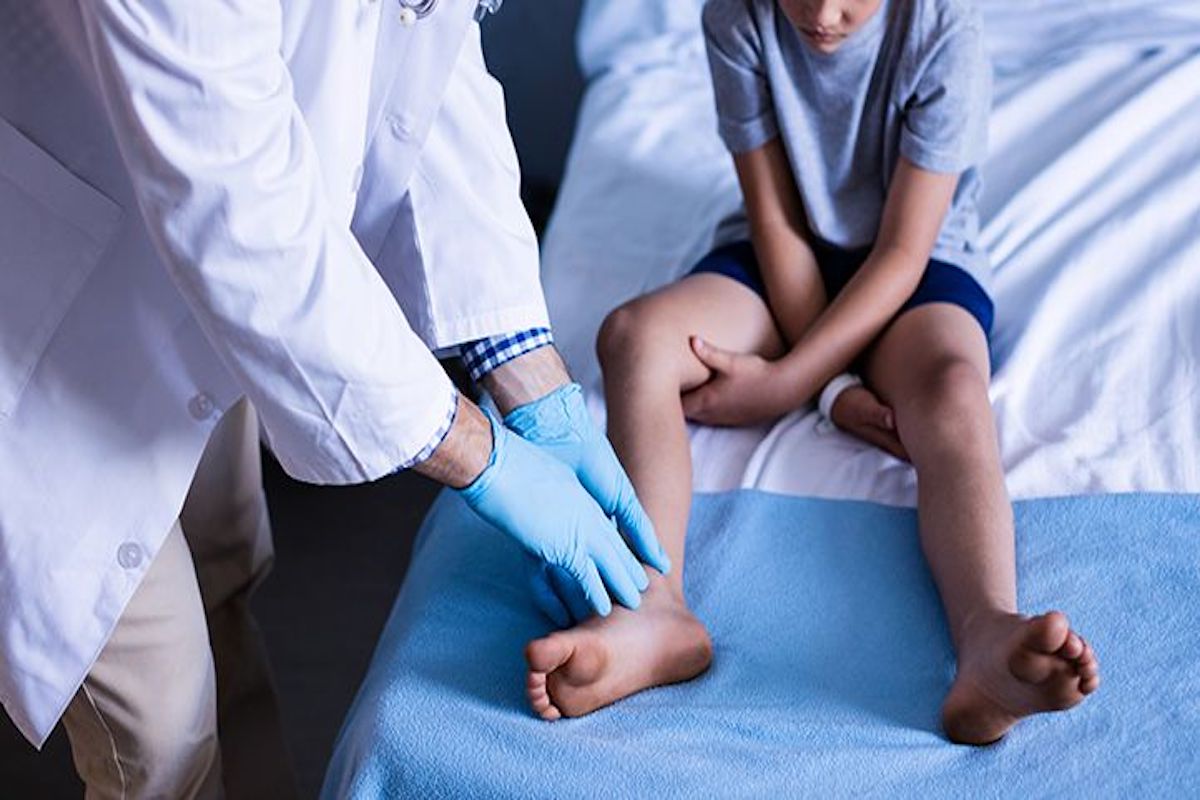Muscular Dystrophy, often called MD, is a set of genetic disorders causing muscle weakness, and affects thousands in the US. Despite its rarity, it contributes to hundreds of annual deaths, highlighting the need for increased research and better treatments. As it’s rare, it’s crucial to know as much about it as possible. The sooner you recognize this, the sooner it gets diagnosed and treatment can start.

What is Muscular Dystrophy?
Before we explain how Muscular Dystrophy is caused, and how you can recognize and treat it, it’s good to know what this disorder, or actually a group of genetic disorders, actually is. Well, imagine your body is like a machine with different parts working together. Muscular Dystrophy is a situation where some of the parts that help you move, the muscles, don’t work as well as they should. It’s a bit like a puzzle with missing pieces, making it harder for the machine (the body) to do things like running, jumping, or even holding things. This can happen in various ways, affecting different parts of the body.
Types & Causes of Muscular Dystrophy
As there are several types of Muscular Dystrophy, which affect different risk groups and parts of the body and are caused in different ways, it can be quite overwhelming and confusing to read everything and all the differences. To make it easier to understand, we’ve created the following table:
| Type of Muscular Dystrophy | Cause | Body Part Affected | Who's at Risk |
|---|---|---|---|
| Duchenne MD | Genetic mutation in the dystrophin gene | Muscles throughout the body | Primarily affects males |
| Becker MD | Genetic mutation in the dystrophin gene | Muscles throughout the body | Primarily affects males |
| Myotonic MD | Genetic mutation affecting muscle function | Muscles throughout the body | Can affect males and females |
| Facioscapulohumeral MD | Genetic mutation impacting muscle structure | Face, shoulder, upper arm | Positive family history |
| Limb-girdle MD | Genetic mutations affecting various proteins | Shoulder, hip, pelvic girdle | Positive family history |
| Emery-Dreifuss MD | Genetic mutations affecting emerin or lamin proteins | Shoulders, upper arms, legs | Often inherited in families |
| Congenital MD | Genetic mutations affecting muscle development | Muscles throughout the body | Positive family history |
| Oculopharyngeal MD | Genetic mutation affecting muscle function | Eye muscles, throat muscles | Positive family history |
Muscular Dystrophy (MD) can cause muscle weakness, making it hard to move and do things. Breathing and heart problems can also occur. Some types might affect thinking. Each year, several hundred people might die from MD complications. Recognizing the symptoms of each types of MD, can diagnose the disease sooner, which means you can start treatment sooner.

Symptoms of Muscular Dystrophy
In every type of Muscular Dystrophy (MD), people often experience muscle weakness. This can make it tough to do things like walking or lifting objects. Sometimes, muscles can cramp or feel stiff. While muscle weakness is common, remember that other symptoms can be different for each type of MD.
Symptoms of Duchenne
The two most common symptoms of Duchenne Muscular Dystrophy (DMD), excluding muscle weakness, are frequent falls and trouble climbing stairs. Children with DMD often experience frequent falls and difficulty climbing stairs due to weakened leg muscles, making it hard for them to keep their balance. Other symptoms include:
- Difficulty getting up from a seated or lying position
- Enlarged calf muscles (due to fat and tissue buildup)
- Limited range of motion in joints
- Delayed motor skills development
- Learning difficulties (in some cases)
- Breathing difficulties (in later stages)
- Heart problems (in later stages)
Symptoms of Becker
The two most common symptoms of Becker Muscular Dystrophy (BMD), excluding muscle weakness, are trouble climbing stairs and difficulty getting up. Similar to DMD, BMD can make climbing stairs challenging due to weakened leg muscles. People with BMD often experience difficulty with getting up from sitting positions or lying down positions, this is also due to weakened muscles. Other symptoms include:
- Enlarged calf muscles (due to fat and tissue buildup)
- Limited range of motion in joints
- Muscle cramps and stiffness
- Heart problems (usually milder and slower to develop than in DMD)
- Breathing difficulties (usually milder and slower to develop than in DMD)
- Learning difficulties (in some cases)
Overview of Symptoms of Less Common Muscular Dystrophy Types
| Muscular Dystrophy Type | Common Symptoms | Affected Body Parts |
|---|---|---|
| Myotonic MD | Muscle stiffness, weakness, myotonia (prolonged muscle contraction) | Face, hands, legs |
| Facioscapulohumeral MD | Facial weakness, difficulty raising arms, shoulder weakness | Face, shoulders, upper arms |
| Limb-girdle MD | Muscle weakness in shoulder and hip muscles, difficulty walking | Shoulders, hips |
| Emery-Dreifuss MD | Muscle weakness in shoulder, upper arm, calf muscles | Shoulders, upper arms, legs |
| Congenital MD | Muscle weakness at birth, delayed motor milestones | Various muscle groups |
| Oculopharyngeal MD | Eye muscle weakness, difficulty swallowing | Eye muscles, throat muscles |
People can confuse Muscular Dystrophy and Multiple Sclerosis (MS) because they both involve muscle weakness. However, they’re distinct conditions. MD is primarily about muscles gradually becoming weaker over time due to gene issues. In MS, muscle weakness can happen too, but it’s because of problems in the brain and nerves that control those muscles. So, while both have muscle weakness, MD is mainly a muscle problem, and MS is more about the brain and nerves.

How Is Muscular Dystrophy Diagnosed?
Discovering if someone has Muscular Dystrophy (MD) is a bit like uncovering a mystery. Doctors start by talking with you about how you’re feeling and any difficulties you might be having. They then use various tests to gather important information. These tests could involve checking how strong your muscles are and how they work. Sometimes, they might even take a very tiny piece of your muscle to examine it closely. This helps them understand if there’s something not quite right with the ‘instructions’ in your body (genes) that could be causing your muscles to weaken. Think of it as piecing together clues, like putting together a puzzle, to find out if MD is the reason behind your muscle issues.
How Is Muscular Dystrophy Treated?
Unfortunately, the is no cure for Muscular Dystrophy. Which means that treatment is mainly focused on on managing symptoms, improving quality of life, and providing support. Treatment options for MD include:
- Physical Therapy: Exercises and stretches to keep muscles flexible, improve mobility, and delay muscle stiffness.
- Occupational Therapy: Techniques to manage daily tasks and maintain independence, even as muscle weakness progresses.
- Mobility Aids: Devices like braces, canes, or wheelchairs to assist with movement and maintain mobility.
- Breathing Support: As some types of MD affect breathing muscles, devices like ventilators can help maintain proper airflow.
- Medications: Certain drugs might help manage symptoms, such as reducing muscle spasms or inflammation.
- Surgery: Corrective surgeries for joint or spine problems caused by muscle weakness.
- Assistive Technology: Tools like speech-generating devices or computer adaptations to aid communication and participation.
- Supportive Care: Managing heart or lung issues that can arise in some MD types.
- Clinical Trials: Participating in research studies to explore potential new treatments.
Treating MD is different for each person and depends on the type and how severe it is, along with other medical conditions. It’s important to work with a healthcare provider to create a treatment plan that works best for you and your symptoms. Do you need information about this condition, possible treatment options, or do your symptoms not match those listed above? Then search further here quickly:

